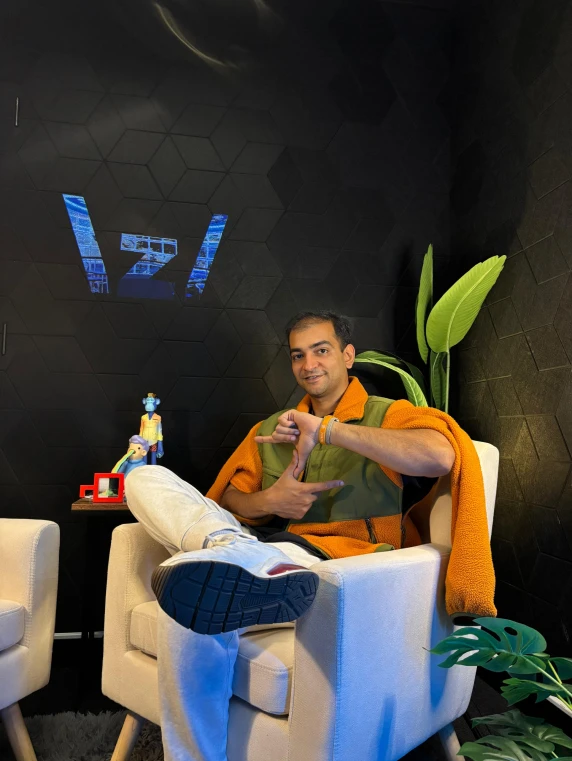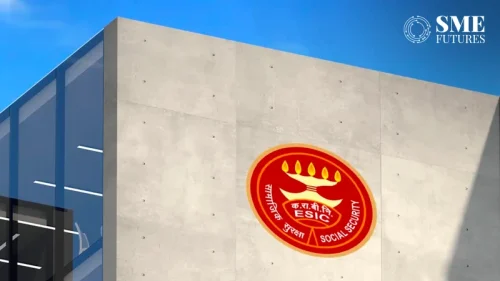Imagine stepping out of the airport in Madrid or Bangalore, quietly whispering “Zo Zo Zo” and immediately being welcomed into a global community of like-minded individuals who thrive on unique cultures. That’s the vision that Dharamveer Singh Chouhan and Chetan Chauhan, Founders of Zo House, are bringing to life with their latest venture under the umbrella of Zo World, a tech-enabled real estate company.
From backpackers to builders: The evolution from Zostel to Zo House
Dharamveer Singh Chouhan, one of the men behind the backpacker hostel revolution Zostel, has set his sights on a new frontier. “Zo World started as a deep play into community and social estates, evolving beyond Zostel’s potential. We saw how powerful community dynamics can become when paired with real estate,” he says. Unlike Zostel, which was all about providing affordable stays for backpackers and digital nomads, Zo House is designed for a different breed—a community of founders, artists, and disruptors who crave both luxury and connectivity.
“Zostel was for the backpackers; Zo House is for the game-changers. We are building spaces where digital pioneers feel at home, being bullish on abundance, convenience, and people who ‘ship silently.’ It’s a community-first market of creators and innovators,” Chouhan elaborates.
A bold vision: Redefining community living in India and beyond
Chouhan’s vision for Zo House is ambitious and deeply rooted in Maslow’s hierarchy of needs. “We tapped into self-actualisation—the top of the pyramid. Our aim is to remove the obstacles between you and your unicorn self,” he notes. For Chouhan, this is more than just a business opportunity; it’s a deeply spiritual and transformative process that he believes can revolutionise the concept of community living.
“It starts with realising that the world is already connected, and boundaries and red tape are interchangeable. This has been happening through the ages and civilisations, and the effects were never localised – this idea and its effects spread by design. So, the day El Salvador brought Bitcoin to land as legal tender, we knew Zo World was global,” says Chouhan.

The goal is to build 50 Zo Houses over the next three years, expanding from their three already existing properties. “There is frankly no upper cap in the market,” Chouhan asserts, highlighting an audience that understands the difference between mere money and actual wealth. He adds, “Our number stands somewhere between 1 and 11 trillion dollars if you understand why the market cap of gold and religion is structured around abundance and belief.”
Navigating challenges and embracing opportunities
Building a community like Zo House is no small feat. Chouhan candidly admits, “Community building, like anything else, is easier said than done.” However, the concept is already proving to be a game-changer. With around 450 founder members holding NFTs worth approximately 3 lakhs each, the demand and enthusiasm are palpable. “The real alpha is knowing a party that no one knows about,” he adds, describing the exclusive nature of Zo House.
The venture’s Whitefield Clubhouse—a sprawling 36,000 square-foot villa and creative studio in Bangalore—is just the beginning. Zo House is also piloting a new category of NFT collectibles that combine social and capital incentives in a deeply self-actualized manner. “It’s the FOMO of not owning a part of the vibe that will drive price dynamics. The current price of each token is 10 lakh INR, and our price movement history projects an inevitable steep curve, never really hitting a ceiling,” says Chouhan.
Future of clubhouses in India: Market ready for disruption
The clubhouse market in India has traditionally catered to the elite and ‘babus,’ with memberships often passed down through generations. “Socially aware engagements were a well-kept secret through the ages. These clubs include facilities that are sometimes dated but enjoy a good community of like-minded people,” Chouhan contends.
Also, these clubhouses’ lifetime memberships range anywhere from Rs 5 lakh to 20 lakhs; but often have some eligibility criteria and a waiting period, especially for the more desired clubs. Such clubhouses are few, owing to the sheer scale of capital expenditure & real estate. Zo House aims to disrupt this space by introducing a modern twist to an age-old concept, focusing on creating vibrant, inclusive communities without the barriers that traditional clubs often impose.
“We target people whose ‘vibe’ matches ours,” Chouhan says, emphasizing that Zo House isn’t limited to any particular demographic. The goal is to attract builders, visionaries, and those who thrive on pushing boundaries.
“Zo Houses have a web3-focused community angle but aren’t restricted to that. We want people who don’t break our Rule No. 3. These are generally people who are builders and have excelled in their field and work well with people. These people know the hustle and know what it is like to build on the edge, extract value for the community, and chill,” he says.
Introducing RWA-backed memberships: An innovative twist
A key innovation that sets Zo House apart is its concept of Real-World Asset (RWA)-backed memberships. “Unlike traditional memberships, which are merely expenses, RWA-backed memberships mean that members get to actually own a fraction of the property,” Chouhan explains. This unique approach turns membership into an asset, allowing members to benefit financially from the property’s appreciation while enjoying exclusive access to Zo House amenities.
“We are accepting applications for exactly this at Zo House Whitefield. Our members can enjoy everything at the property while retaining ownership. This means people get to put their money behind the revenue engine and estates, all while relaxing in the Whitefield sauna room, after a nice swim of course!” he asserts. It’s a radical shift from the typical membership model, offering a blend of luxury living and smart investment.
Scaling up: No limits, only horizons
When asked about his goals for Zo House, Chouhan is unequivocal: “We don’t have short-term goals. We only have a vision of global communities with a Zo House in every capital city and a community of a million Zomads.” With properties already in Bangalore, Dubai, and San Francisco, Zo House is poised to expand into more cities across the world.
“Other cities are in the works alongside other concepts than just the Zo Houses in the three cities. We have ongoing discussions on the East Coast, Gold Coast, and Eastern Europe,” Chouhan reveals. “The view from the top is crazy, and we wouldn’t be surprised if we end up building Zo Houses on moon craters and Mars flatlands. It’s just a matter of time and space,” he jokes, but one can’t help but feel that he’s only half kidding.
Power of positive vibes
Ultimately, what drives Zo House’s expansion is a unique metric: Vibes. “We operate a lot based on vibes. If the vibes are positive, the community will follow,” Chouhan asserts. This “vibe-centric” approach is what makes Zo House so distinctive. It’s not just about the numbers; it’s about creating a space where like-minded individuals can thrive, build, and grow together.
In Chouhan’s words, “The vibes are what’s cooking up a real storm.” And if his track record is anything to go by, Zo House is set to become much more than just a new venture—a new way of living perhaps?












Wonderful Concept of Zo House. Also, the article is insightful.